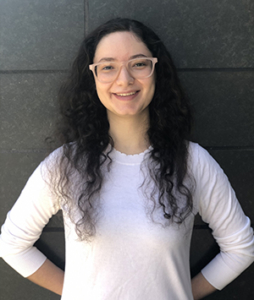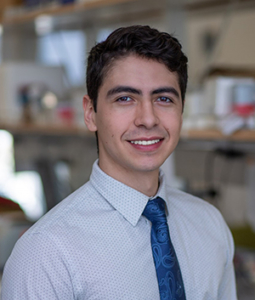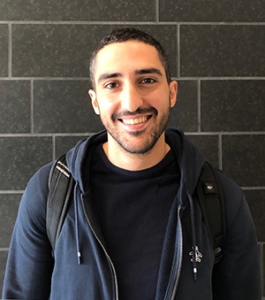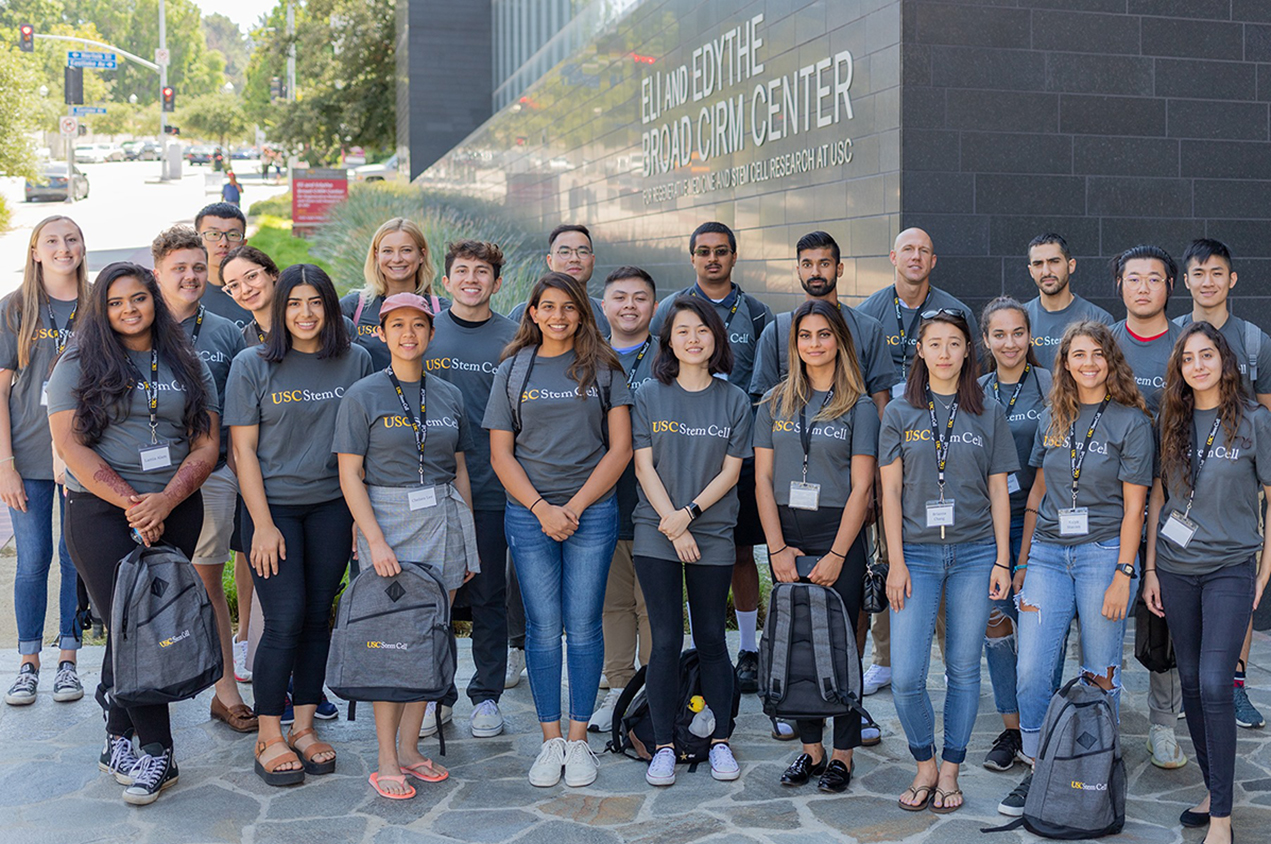The 34 students in the master’s program in stem cell biology and regenerative medicine at the Keck School of Medicine of USC have at least two things in common. First, they’re smart, with an average incoming GPA of 3.4. And second, they all seemed to enjoy the boba tea served at this year’s student orientation at the Eli and Edythe Broad Center for Regenerative Medicine and Stem Cell Biology at USC.
Beyond that, the class of 2020 is a highly diverse bunch. Here, three master’s students share their backgrounds, their experiences at the Keck School and their plans for the future.
Sevana Harotoonian
Where are you from? I was born and raised in Iran. I first moved to the United States in 2016 and lived in Iowa. I moved back to Iran and then came back to the United States to live with my uncle in Indiana and then finally moved to California to complete my master’s at USC.

Sevana Harotoonian (Photo courtesy of student)
What made you choose the program? I started my graduate studies in Human Genetics at Iran’s top university, where I focused on cancer case studies. I stopped after one semester and decided to move to the US because I felt I had more opportunities there. Research facilities in Iran were deteriorating due to political sanctions, and I felt that the technology, curriculum and overall experience would be more rewarding in the US.
I became particularly interested in stem cell research when my uncle was diagnosed with thyroid cancer. They removed sections of his gland, and I became very curious and wanted to know what exactly was going on and what the science was behind that. It motivated me to pursue my graduate studies. Additionally, my brother has been a great help in my decision to go to graduate school. He is also in the STEM field and has helped me along in the process. I am very grateful to have his guidance. All this brought me to join the stem cell program at USC.
How is life in Los Angeles? This is my first time in California, and I did not know what to expect, but I am happy that I have more work and research opportunities here than I had in Iran. I also have extended family living here in LA, so it has been good to be close to them.
Where do you see yourself after the program? I love the academic world and the academic setting. I am considering staying in academia to pursue my PhD and/or MD. So far, I have been volunteering in Dr. Min Yu’s lab, where I have gotten to learn more about cancer and cancer studies. I am hoping to continue learning more.
Axel Hidalgo
Progressive Degree Student (USC undergraduate simultaneously completing bachelor’s and master’s degrees)

Axel Hidalgo (Photo courtesy of student)
Where are you from? I am from Cuidad Juarez, Mexico, and came to USC four years ago as an undergrad. For the first two years, I commuted from Cuidad Juarez to attend class.
What made you choose the program? As an undergrad, I began volunteering in Dr. Michael Bonaguidi’s lab, studying neural stem cells. Having this exposure early on really motivated me to pursue my master’s in the same department. As a progressive degree student, I have multiple advantages: I have an easier transition to life at USC, I have the flexibility to space out my classes and take as much or as little time as I want to complete both my bachelor’s and master’s, and finally, I already knew some faculty, the department and its resources. Because of this, it was almost a no brainer that I pursue my master’s at USC.
What about the program stands out to you the most? Being a part of this program has been the biggest learning experience of my life! There is an overwhelming amount of information, and there is something new to learn every day. I enjoy the exposure to all the faculty and their research, and being a part of the department. All the professors have been helpful, and I enjoy the tight-knit classes. I feel that I can have all my questions answered, and it is cool to see everyone growing in their own ways. The learning feels more personalized in this setting.
How is life in Los Angeles? I love that LA is a big, busy and colorful city. There is always something to do, if you are proactive about it. Also, through my various research and volunteer experiences, I have been able to connect with the Spanish-speaking community in the LA area. Having someone speak the language and understand the culture goes a long way with connecting people in health and science.
Where do you see yourself after the program? I am hoping to start applying to medical school this year. During my gap year and all through medical school, I intend to pursue full-time research. After medical school, I hope to obtain my postdoc. I am interested in both clinical work and research.
Nima Adhami
Where are you from? I was born and raised in Los Angeles and went to UCLA for my undergrad.

Nima Adhami (Photo courtesy of student)
What made you choose the program? Growing up, I thought I wanted to be a doctor. After shadowing doctors in the clinical setting, I realized I was more interested in research-based medicine, particularly stem cells. Stem cell research is a growing field that I want to be a part of. I feel like we are at the ground floor of a major breakthrough in the stem cell/science community, and I want to learn from the best of the best and be a part of these advancements.
I always knew I wanted to pursue science, but felt more motivated by the fact that both of my parents are engineers. I wanted to do well for them and make them proud.
What about the program stands out to you the most? I was surprised by the caliber of the faculty members and their extensive achievements. The discoveries that are being made here are happening at such a fast rate that there seems to be a large capacity for rapid discovery. I feel that I can put what I learn in class to use in real time, and it’s cool to see the curriculum translate to work in the lab.
Here at USC, since our cohort is small, I feel I get more personalized attention, and I am able to fire off as many questions as I need without having to wait for 50 other people to get their questions answered. The discussion-based learning is the best way to go for this type of curriculum, and I feel that the other students and I are able to thrive off that.
How is life in Los Angeles? I am a die-hard Angeleno, born and raised. To me, LA is the place to be when it comes to advancements in science and modernization. USC is the quintessential LA school, because it is such a melting pot and is an accurate reflection of the city of LA.
Where do you see yourself after the program? I hope to pursue my PhD, ideally with the PIBBS program here at USC. My ultimate goal is to make a lasting contribution to the stem cell field or research medicine. Hopefully, one day, I can come up with some sort of discovery that clinicians can use to treat their patients in the future.
For more information about the program and how to apply, visit scrm.usc.edu. Applications for the Fall 2020 school year are currently being accepted until March 1st, 2020. Progressive degree admissions are accepted on a rolling basis. More information can be found at scrm.usc.edu/progressive.


